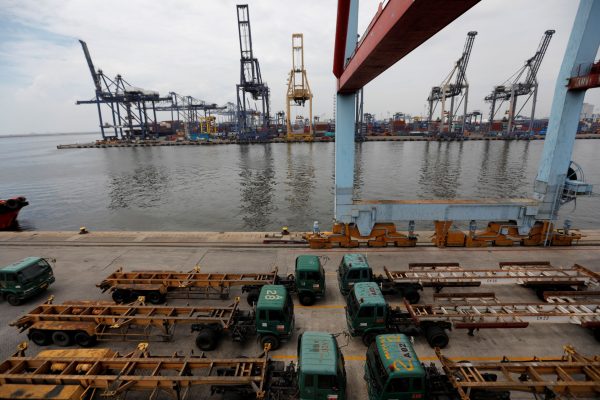Indonesia — a country still walking the line between free trade and protectionism — is a key player in RCEP. Its participation is important for two reasons. First, it is a major step in Indonesia’s nascent trade diplomacy. Second, it will play a significant role in the country’s economic recovery from the COVID-19 pandemic. But Indonesia will need to back up its participation with continued infrastructure development and economic reform if it is to fully benefit from the gains of the agreement.
One of RCEP’s chief benefits will be its contribution to the regional integration of the Indo-Pacific. By creating a single set of trade rules and simplifying complex issues such as rules-of-origin, RCEP will unfetter the development of regional value chains. Under a regional certificate of origin regime, Indonesian goods will be able to move more smoothly across the 15-member bloc. Its investment provisions — including ‘negative list’ liberalisation by all members — will also make the Indo-Pacific more attractive for new value chain investments.
This change in the region’s trade patterns is important for Indonesia, as it has struggled to capture a significant share of production and investment moving out of China as a result of the US–China trade war.
But Indonesia will need to complement RCEP by continuing to address a host of connectivity issues. Indonesia’s non-tariff trade costs to China — its largest trading partner — are high compared to other peers such as Vietnam and Malaysia. This hints at high transport costs and impairments related to Indonesia’s billion-dollar infrastructure gap.
That gap is becoming harder to fill as the COVID-19 pandemic puts pressure on Indonesia’s economy and state budget. Indonesia will need to rely more on the resources of the infrastructure and connectivity initiatives that have been launched by governments in the Indo-Pacific region. These include China’s Belt and Road, Japan’s Partnership for Quality Infrastructure and the Asian Infrastructure Investment Bank. Participating in these also requires skilful diplomacy to manage the geopolitics involved.
Through its participation in RCEP, Indonesia sets itself up to draw more investment from the region. One of Indonesian President Joko ‘Jokowi’ Widodo’s signature initiatives is his efforts to attract foreign capital and improve Indonesia’s standing as an investment destination. But while Jokowi has succeeded in his outward-facing efforts, he has failed to articulate to the Indonesian people the benefits that come from foreign direct investment. Many officials remain committed to wrapping investment procedures in red tape and are adept at erecting barriers to trade.
Under RCEP’s investment chapter, Indonesia will adhere to most-favoured nation treatment and it is the first time Indonesia has negotiated investment provisions with the whole region. Indonesia opened up a handful of previously limited sectors under its trade agreement with Australia — known as IA-CEPA — which entered into force in July 2020. RCEP does not include an investor-state dispute settlement mechanism.
To receive enough investment in the wake of COVID-19, the Indonesian government must make progress in other policy areas beyond trade agreements — particularly on issues that investors see as immitigable risks. Reforming the bureaucracy would be a start including cutting red tape, reducing corruption and reforming the legal system.
Tackling these intractable issues will be challenging in the present political climate. Indonesia already experienced a popular backlash against the controversial and expansive jobs creation omnibus bill that the legislature passed in early October. The purported aim of the bill was to promote foreign investment by changing 76 existing laws spanning employment and labour laws, patent laws, land acquisition and taxation.
The bill does tackle long-standing investor complaints. For example, it eliminates Indonesia’s notorious negative investment list, which placed caps on or prohibited investment in hundreds of sectors. It now opens up all but six sectors to foreign investment, including sectors such as gambling and casinos. Sceptical investors will wait to see if subsequent regulations undo this progress.
The omnibus bill has also been criticised for what it has failed to address. State-owned enterprises (SOEs) dominate the construction industry and the Indonesian government relies on SOEs to break ground on infrastructure projects. Yet despite their reputation for corruption and market-distorting advantages, they go untouched. RCEP does not contain a chapter addressing the role of SOEs in member countries as other trade agreements do. Levelling the playing field between private companies and SOEs is one key to attracting more private investment in Indonesia’s infrastructure.
RCEP promises to be a catalyst for post-pandemic economic recovery in the region. But in Indonesia’s case, it needs to be combined with economic reforms and the development of infrastructure that facilitates the movement of goods and services. This will allow Indonesia to maximise its benefits in a new era of Indo-Pacific free trade.
Kyle Springer is a Senior Analyst at the Perth USAsia Centre, University of Western Australia.

